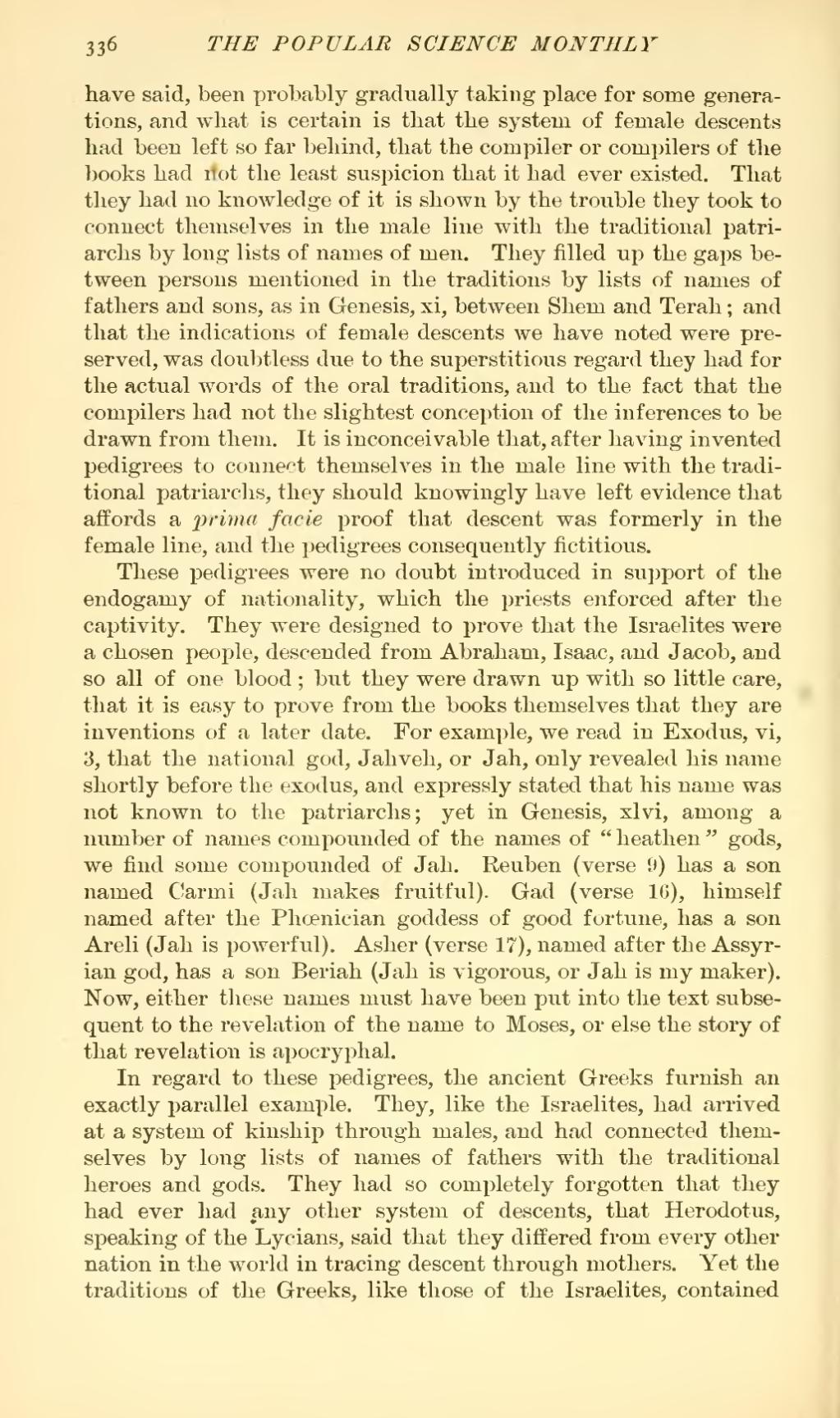have said, been probably gradually taking place for some generations, and what is certain is that the system of female descents had been left so far behind, that the compiler or compilers of the books had not the least suspicion that it had ever existed. That they had no knowledge of it is shown by the trouble they took to connect themselves in the male line with the traditional patriarchs by long lists of names of men. They filled up the gaps between persons mentioned in the traditions by lists of names of fathers and sons, as in Genesis, xi, between Shem and Terah; and that the indications of female descents we have noted were preserved, was doubtless due to the superstitious regard they had for the actual words of the oral traditions, and to the fact that the compilers had not the slightest conception of the inferences to be drawn from them. It is inconceivable that, after having invented pedigrees to connect themselves in the male line with the traditional patriarchs, they should knowingly have left evidence that affords a prima facie proof that descent was formerly in the female line, and the pedigrees consequently fictitious.
These pedigrees were no doubt introduced in support of the endogamy of nationality, which the priests enforced after the captivity. They were designed to prove that the Israelites were a chosen people, descended from Abraham, Isaac, and Jacob, and so all of one blood; but they were drawn up with so little care, that it is easy to prove from the books themselves that they are inventions of a later date. For example, we read in Exodus, vi, 3, that the national god, Jahveh, or Jah, only revealed his name shortly before the exodus, and expressly stated that his name was not known to the patriarchs; yet in Genesis, xlvi, among a number of names compounded of the names of "heathen" gods, we find some compounded of Jah. Reuben (verse 9) has a son named Carmi (Jah makes fruitful). Gad (verse 16), himself named after the Phoenician goddess of good fortune, has a son Areli (Jah is powerful). Asher (verse 17), named after the Assyrian god, has a son Beriah (Jah is vigorous, or Jah is my maker). Now, either these names must have been put into the text subsequent to the revelation of the name to Moses, or else the story of that revelation is apocryphal.
In regard to these pedigrees, the ancient Greeks furnish an exactly parallel example. They, like the Israelites, had arrived at a system of kinship through males, and had connected themselves by long lists of names of fathers with the traditional heroes and gods. They had so completely forgotten that they had ever had any other system of descents, that Herodotus, speaking of the Lycians, said that they differed from every other nation in the world in tracing descent through mothers. Yet the traditions of the Greeks, like those of the Israelites, contained
